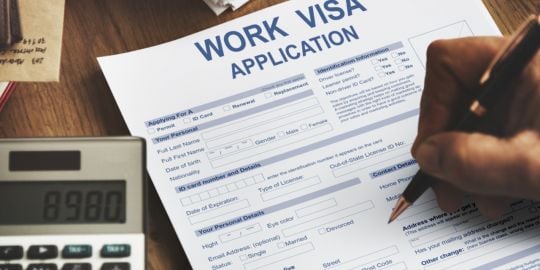Visa application forms and information re Brazil
08/02/22 When you go into the various visas they seem to throw up serbia, america, nigeria etc. Is there one for the UK, Portugal or Europe?- @ltoby955
@abthree Thanks so much for all your help. I came across a lawyer today that explained the uniao sautavel, it seems that there is no time limit on being together and if notorized and lodged with the dept for documents it can help with a visa, is that as good as it sounds? My partner as I think I have mentioned before is Brazilain. we have been friends for years and togther this year.
08/03/22 @abthree Thanks so much for all your help. I came across a lawyer today that explained the uniao sautavel, it seems that there is no time limit on being together and if notorized and lodged with the dept for documents it can help with a visa, is that as good as it sounds? My partner as I think I have mentioned before is Brazilain. we have been friends for years and togther this year.
- @ltoby955
@abthree That's great news, many thanks.
@ltoby955 you need to apply from outside brazil. You need to get the vipre visa for permanent residency from your local closest consular office. If you're married to a Brazilian you can get this or the retirement one. They give you a one yr visa and you need to take a form and fill out a form at the Federal police office. I just did it all. You also need to apply for a CPF card. At least this is how it's done in cda.
@ltoby955 you need to apply from outside brazil. You need to get the vipre visa for permanent residency from your local closest consular office. If you're married to a Brazilian you can get this or the retirement one. They give you a one yr visa and you need to take a form and fill out a form at the Federal police office. I just did it all. You also need to apply for a CPF card. At least this is how it's done in cda.
- @Cserebogar
@Cserebogar according to the many lawyers and visa agents posts on google they don't say that. I read that in a uniao stavle you go to a notary or notaria in Portuguese swear that you are in a said relationship and register that with the department and then go to the federal police for the visa.
@rraypo sorry vitem not viper...viper was the old. They don't give out permanent visas anymore.
They don't give out permanent visas anymore.
- @Cserebogar
- The Federal Police will grant Authorization for Residency on the Basis of Family Reunion (functional equivalent of a VITEM XI) if the foreign applicant provides sufficient proof of the relationship (e.g., a Marriage Certificate recognized in Brazil) and all of the required documentation. This is done as an accommodation to the Brazilian partner, not to the foreign applicant, so the Brazilian partner should be present at every stage, and the applicant shouldn't expect any flexibility on the documentation requirements;
- During the first months after it was created, the Federal Police were granting Authorization for Residency to Digital Nomads (functional equivalent of a VITEM XIV -- Digital Nomad) to people already in Brazil. Now that the visa is established and the Consulates have their procedures in place, I don't know that the Federal Police will continue to be flexible on this.
RraypoGreat information. Do you know the steps, especially the first step, I need to take to obtain the VITEM XIV retirement visa if I want to apply while in Brazil? I'm currently in Brazil on my first 3 months on an American passport. I was thinking to go get an extension for another 3 months and then start working on the retirement visa. Do I go to PF or another office to start the retirement visa? Is there a way to apply online? Also, I didn't know I would get a RNM when I was approved, which is good. Would I be able to get a CPF number. Also, I guess I don't understand the difference between immigration to Brazil and the retirement visa. What happens after I get the retirement visa? Is that the first step to permanent residency?- @jasonlovesdogs
Do you know the steps, especially the first step, I need to take to obtain the VITEM XIV retirement visa if I want to apply while in Brazil?- @jasonlovesdogs
- @worldsoundly08/05/22 As I understand, maybe the 2017 law made it possible, but as per the information you provided, in practice it still is not any easier then.
and has an insurance requirement that I think is probably unconstitutional, since it seems to bar permanent residents from SUS.@abthree









